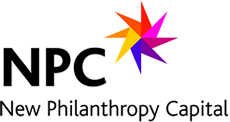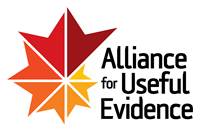The Emerging Profession Blog - “Ich bin ein sozialer Wirkungsanalyst”
Ben Rickey is the Development Programme Manager at NPC. This blog is the first in a series looking at key questions in the emerging profession of impact analysis. This blog was originally posted on the NPC website here.
Ich bin ein sozialer Wirkungsanalyst: the phrase that ended the annual conference of the Social Impact Analysts (SIA) Association in Berlin last week. Saying ‘I am a social impact analyst’ may be simple, but dig a little deeper and its meaning gets a bit complicated, as I found at this inspiring event.
Time and again, discussions came back to what it means to be a social impact analyst. This is unsurprising given how early we are in the development of measuring and analysing impact. Analysts have no code of practice or common qualification, and most people wouldn’t recognise the profession. As Andreas Rickert, CEO of Phineo, jokingly commented ‘at parties nobody understands my job, it’s nice to be around people who actually get what I do.’ Some of those the profession seeks to serve—funders, investors, charities, social enterprises—struggle to see the value of impact analysis. Given these challenges, the conference’s focus on ‘an emerging profession’ was apt.
So what does it mean to be a social impact analyst? I asked myself this on a bumpy flight back to London. Reflecting on discussions, an impact analyst seems to me to blend three roles that, taken together, distinguish them from evaluators and researchers.
First, social impact analysts are scientists, bringing rigour and robustness to help answer the question: ‘what difference did this make to people’s lives?’ This does not mean there aren’t differences between analysts: some emphasise bottom-up approaches, others top-down, some focus on qualitative data, others quantitative. But we share a common goal: to get the best possible picture of the real social impact created.
Secondly, they are campaigners. The very need for impact analysis is not universally accepted—many organisations prefer the status quo. In the face of scepticism or apathy, impact analysts have a lot of convincing to do. We have to change attitudes by demonstrating the value of impact analysis, focusing (where possible) on how we help the organisations we work with have more impact. NPC’s experience suggests that we can change mind-sets, but it takes time and a groundswell of support, and one organisation alone won’t get far alone.
Thirdly, social impact analysts are change makers. When asked why she went to work in the morning, one delegate said ‘to change the way people see their work.’ This was a common theme. We aren’t satisfied with generating nice evaluation reports. We want people in social purpose organisations to think and act differently as a result of our work. In practice, this means we need to work with organisations to help them measure their impact in ways that can help them manage performance, learn and improve. This sounds simple, but to achieve it, you need macro-level changes in systems. For example, organisations need a measurement system that is fit for purpose. This often requires extensive research and consultation with staff and beneficiaries. But the micro-level changes in practices are crucial too, as one delegate put it: ‘we encourage colleagues to talk about the impact they have made in the coffee break, it’s about creating an everyday culture of reflective practice.’
Social impact analysts need a range of skills to be able to fulfil these three roles. So to the three roles above, I would add ‘juggler.’ We also need to be able to juggle these different roles, which are often in tension. For example, being scientific can mean being the bringer of bad news. As one delegate put it: ‘when we found out the charity was not doing a great job, the charity didn’t want to know, neither did their funder.’ This can undermine our relationship with charities or funders, a relationship that is essential if we are to change their practices.
After the conference, I was left with a strange mixture of emotions: apprehension, excitement, and a touch of confusion. But above all, I felt proud to call myself ‘ein analyst des sozialen auswirkungs.’






+44 (0) 20 3111 0735
[email protected]
Follow us on Twitter
Join us on LinkedIn
Join us on Facebook
Our photos on Flickr
Subscribe to our Feed